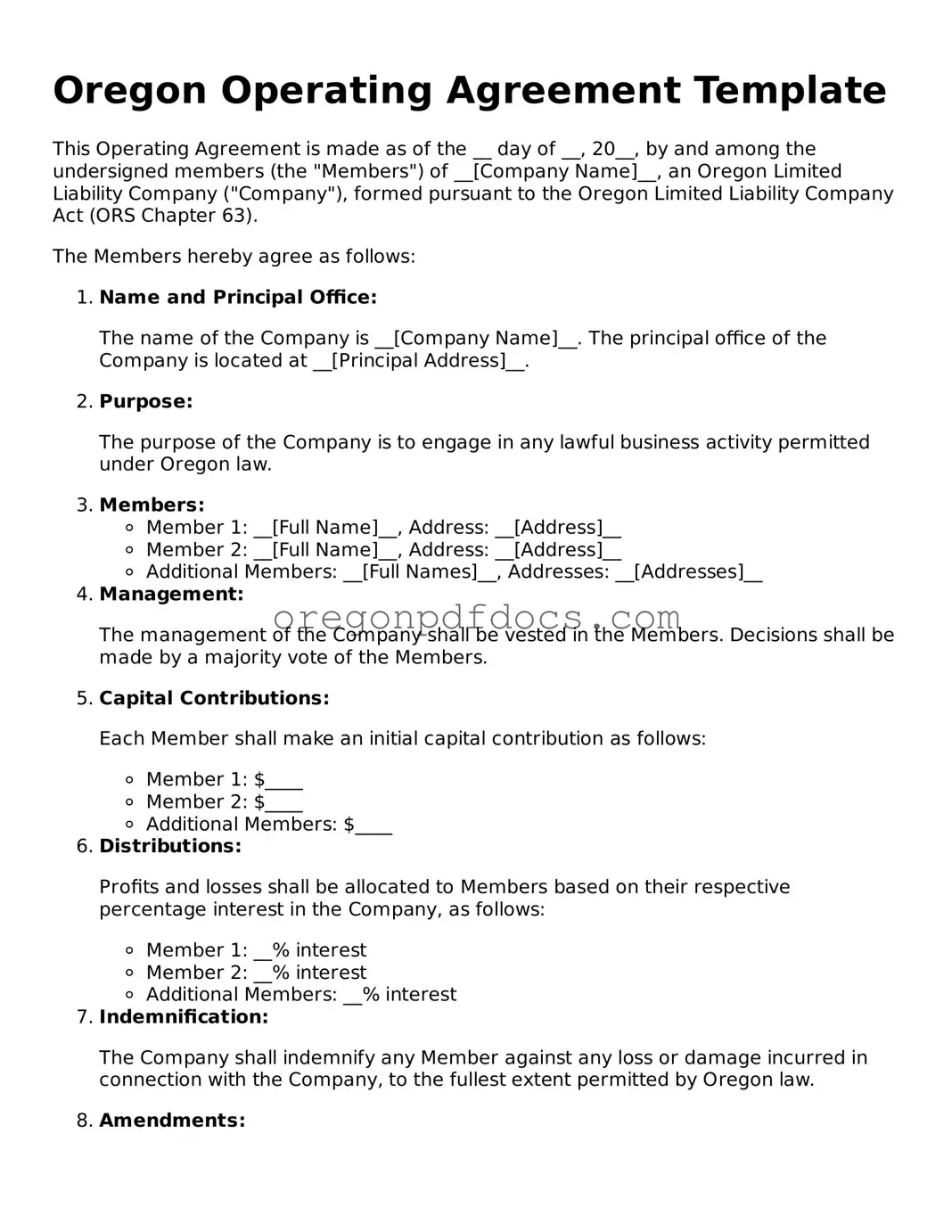Printable Oregon Operating Agreement Document
The Oregon Operating Agreement form is a legal document that outlines the management and operational procedures of a limited liability company (LLC) in Oregon. This form serves as a foundation for the relationship among members and helps define their rights and responsibilities. To ensure compliance and clarity, it is essential to fill out the form accurately.
Get started by filling out the Oregon Operating Agreement form by clicking the button below.
Make My Document Online

Printable Oregon Operating Agreement Document
Make My Document Online

Make My Document Online
or
Get Operating Agreement PDF Form
One more step to finish this form
Finalize your Operating Agreement online in a few easy steps.